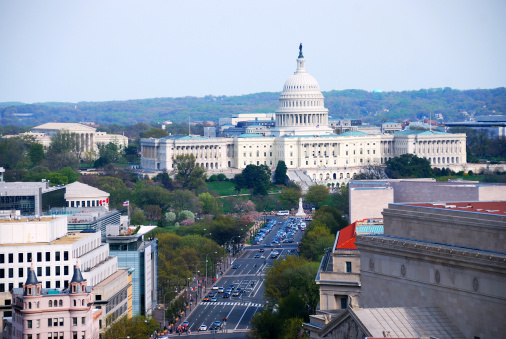
Source: Thinkstock
If U.S. laws remain unchanged, the federal debt would decline for the next several years, according to the Congressional Budget Office (CBO), but rising deficits would lead to federal debt of 100% of GDP in 25 years. The data come from the CBO’s 2013 Long-Term Budget Outlook published Tuesday.
Using baseline assumptions based on current law, the federal deficit will be lower this year than in any year since 2008, just 4% of the nation’s GDP, compared with nearly 10% in 2009. The federal deficit would decline to 68% of GDP by 2018. By 2023, the annual budget deficit would be nearly 3.5% and federal debt would total 71% of U.S. GDP. But, as the CBO states, the debt “would be on an upward trajectory.”
On the 25-year horizon of the CBO’s long-term study, federal spending on major health care programs and Social Security increase to a total of 14% of GDP by 2038, double the average 7% over the past 40 years. Spending on everything except health care, Social Security and interest on the national debt would decline to 7% of GDP, significantly below the 11% average of the past 40 years. Net interest payments would rise to 5% of GDP from a 40-year average of 2%, due to the size of the debt.
Federal revenues are expected to total 19.5% of GDP in 2038, up from a 40-year average of 17.5%. But the growth in revenues lags the growth in spending after 2015, and as that gap grows, the annual deficit reaches 6.5% of GDP by 2038 and debt rises to 108% of GDP.
Under alternative scenarios, the CBO estimates that debt could fall to a low of 65% of GDP or rise to a nosebleed level of 156% of GDP. The report notes:
CBO’s analysis shows that under a wide range of possible assumptions about some key factors that influence federal spending and revenues, the budget is on an unsustainable path. … On one hand, waiting to cut federal spending or raise taxes would lead to a greater accumulation of debt and would increase the size of the policy adjustments needed to put the budget on a sustainable course. On the other hand, implementing spending cuts or tax increases quickly would weaken the economy’s current expansion and would give people little time to plan for and adjust to the policy changes. The negative short-term effects that deficit reduction has on output and employment would be especially large now, because output is so far below its potential level that the Federal Reserve is keeping short-term interest rates near zero and could not lower those rates further to offset the impact of changes in spending and tax policies.
The coming debate over the U.S. debt ceiling brings into sharp focus the issues that the CBO raises in that statement. As we like to say, stay tuned.
Sponsored: Find a Qualified Financial Advisor
Finding a qualified financial advisor doesn’t have to be hard. SmartAsset’s free tool matches you with up to 3 fiduciary financial advisors in your area in 5 minutes. Each advisor has been vetted by SmartAsset and is held to a fiduciary standard to act in your best interests. If you’re ready to be matched with local advisors that can help you achieve your financial goals, get started now.
Thank you for reading! Have some feedback for us?
Contact the 24/7 Wall St. editorial team.



